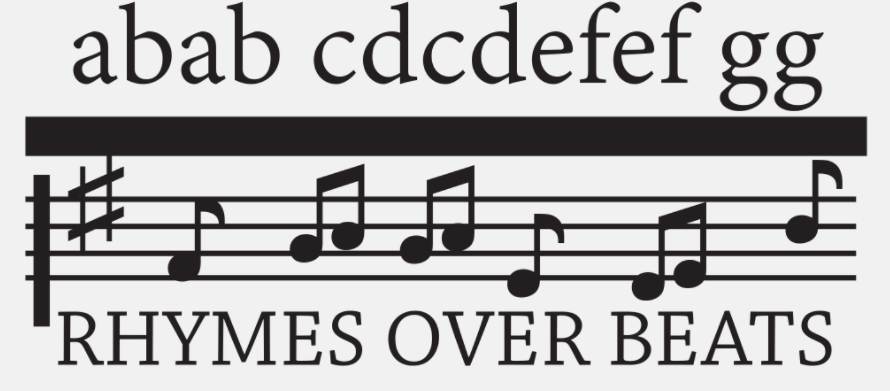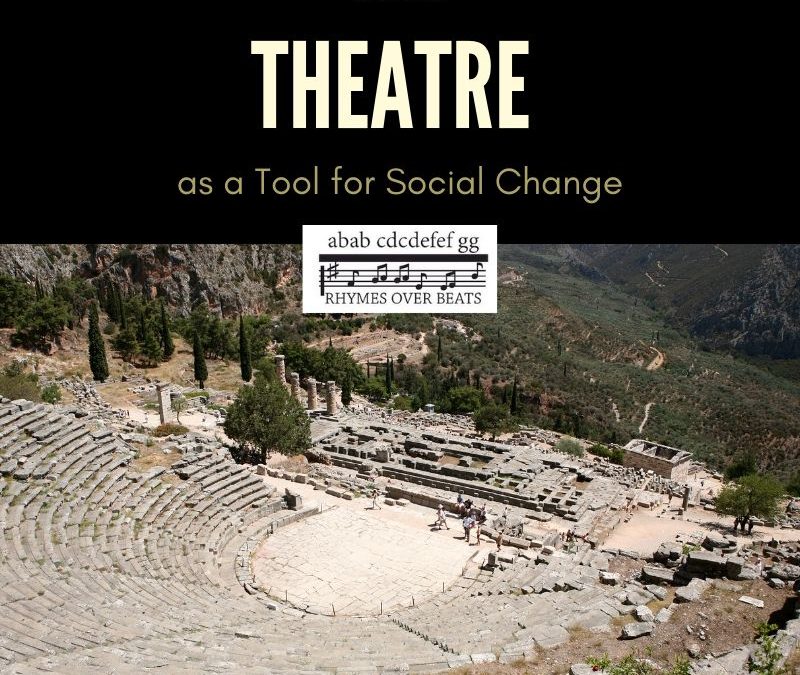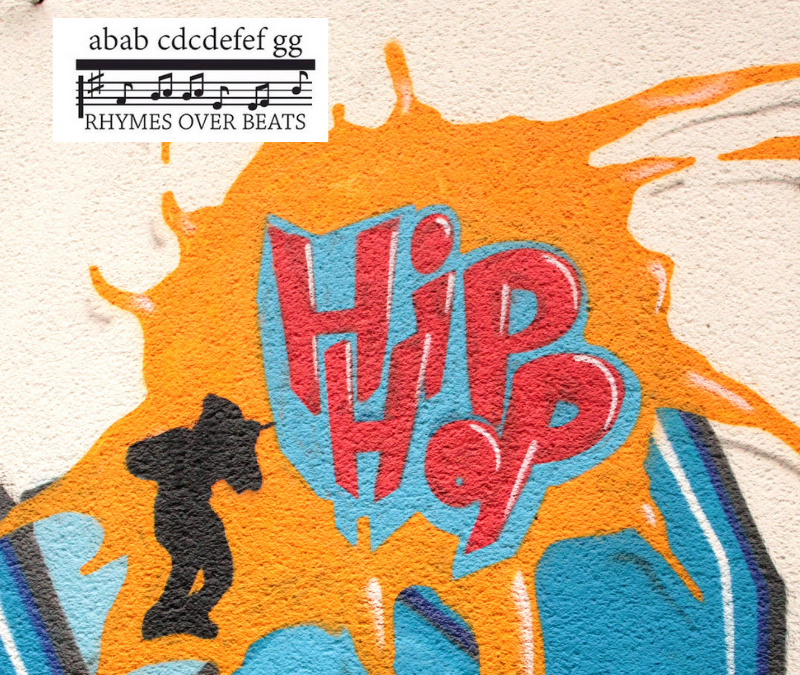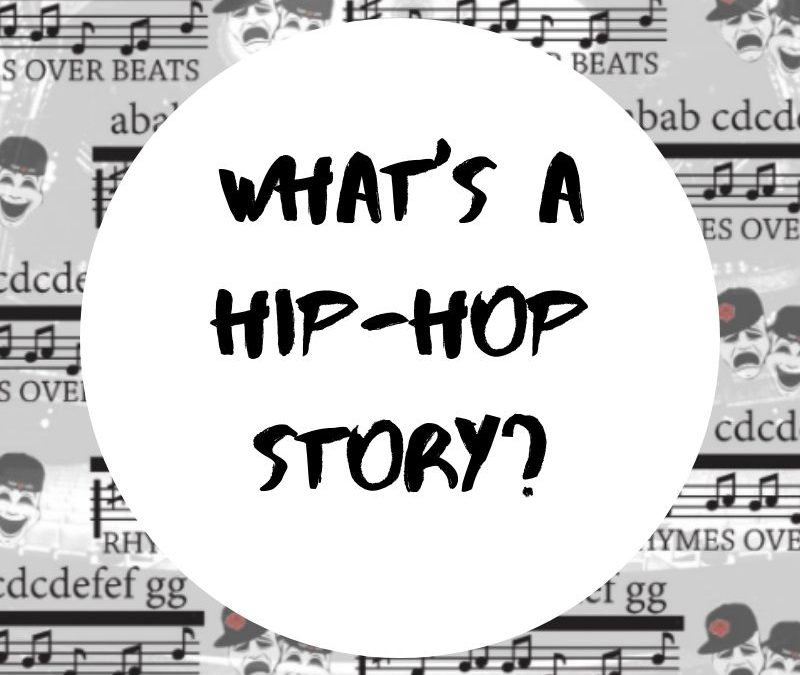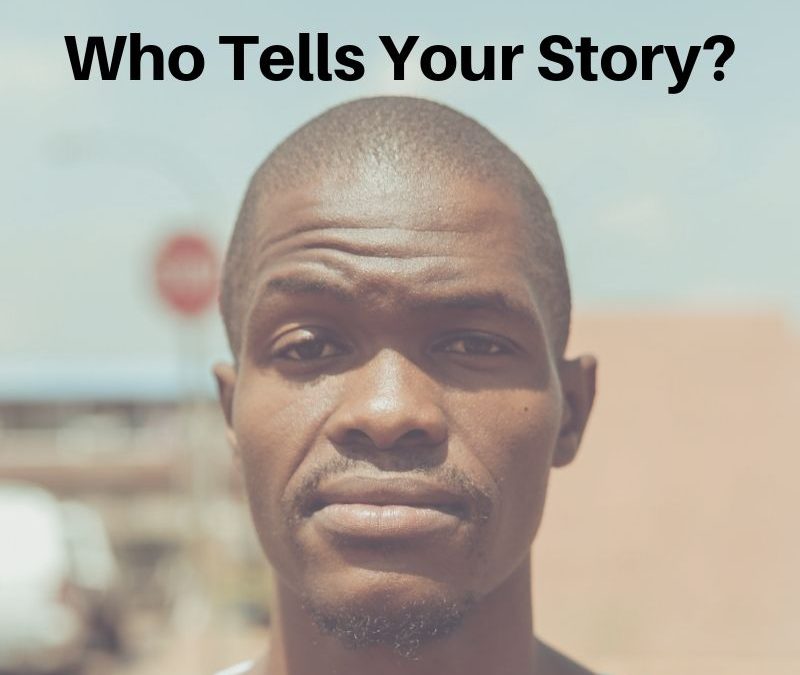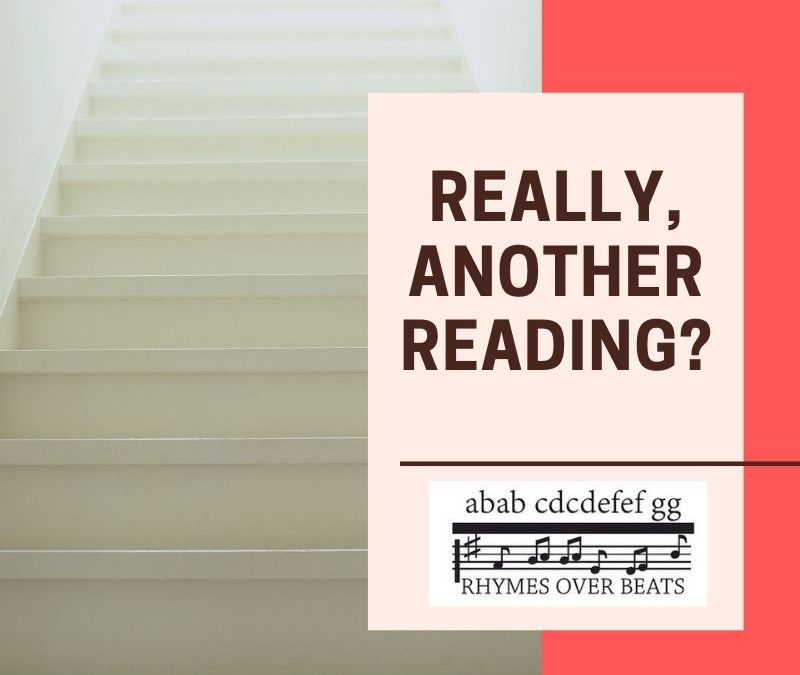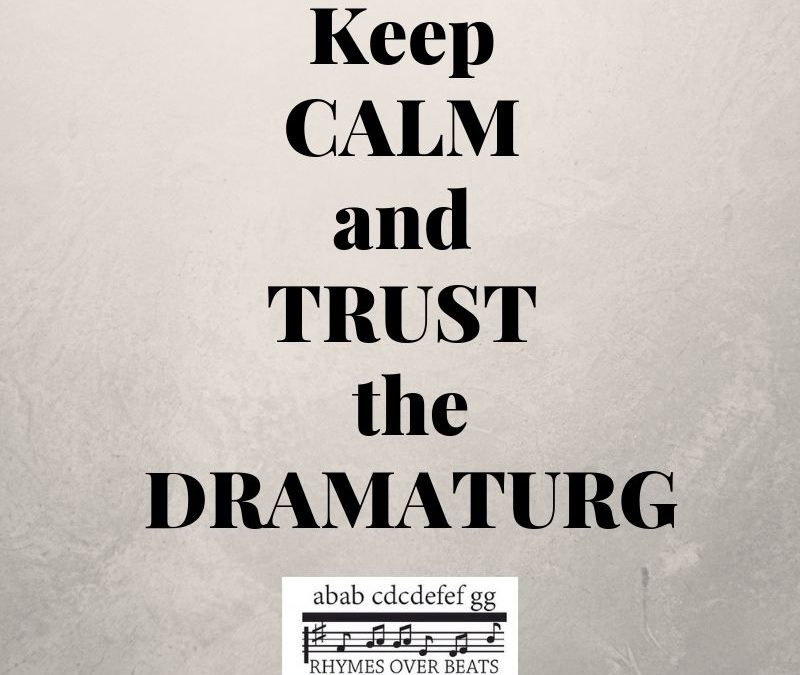
Trust the Dramaturg
Last week our Associate Artistic Director Cate Cammarata and I attended the annual LMDA conference in Chicago. LMDA is a professional association of literary managers and dramaturgs around the country who often work in the major regional theater companies and at universities. They come together once a year to share best practices and to talk about advances and opportunities in the field of dramaturgy.
We got to connect with old friends and tell new ones about Rhymes Over Beats. It was a very productive meeting.
But what, you ask, is a dramaturg?
If you have been following the blog, you probably have a good idea about Rhymes Over Beats and what we do. This blog is about the how dramaturgy plays a role in the Rhymes Over Beats Collective.
What’s a Dramaturg?
The role of a dramaturg is one of the least understood positions in the American theater. Although dramaturgs have been around since the 18th century in Germany, they are a relative newcomer over on this side of the pond, becoming more important in the 1970’s and ’80’s. Dramaturgs usually work for a regional theater and are assigned to to help a playwright write the best version of their play. They are skilled at helping shape a play’s structure and then providing research that allows more ideas for the entire creative team to build into the production. Dramaturgs’ research helps identify meanings for the audience that may not be fully excavated and aborbed until they frame it in a greater context.
This is particularly important for us, because some of our playwrights are hip hop artists who have never written a play or musical before but still have something important to say. Even experienced playwrights appreciate working with an experienced dramaturg who “gets” what they’re trying to do.
Speaking as a playwright, I find that writing a play is intense and emotional work. You become very attached to your work exactly as you wrote it. It is telling that many playwrights refer to their plays as their “children.” And as parents we sometimes ignore or downplay the flaws of our children, seeing only what we want to see. This can be dangerous for a producer, which is why it is usually producers, self-producing playwrights and producing theaters that hire dramaturgs.
Process: It’s About the Message
Dramaturgs are not emotionally invested in the work. They are able to stand back and ask questions that help the playwright see the play the way an audience sees it. They are, basically, the “first audience” of the play and are skilled at reading a script and identifying problems.
But in theater, unlike films and television, the emphasis is on process and not product. Dramaturgs are not “script doctors” who tell a writer what to fix where, but instead are always the advocate of the writer in all things. They ask questions like, “This is confusing. What did you want the audience to feel here?” and “I’m becoming detached by scene 5 because nothing is happening yet – it’s all talk.” Together the dramaturg and the playwright discuss the play moment by moment, where intentions are understood, focus is clarified, and ultimately the dramatic structure is built scene by scene to deliver the needed impact, or catharsis, to the audience at the end of the show.
Our Associate Artistic Director Cate Cammarata works with each of our writers to make each of Rhymes Over Beats’ shows as good as they can possibly be, not by rewriting the work but by working alongside each artist to help him communicate his message up there on the stage.
This investment in the process of every artist is just what we do, and how we respect every artist in the collective.
Are You Writing a Play?
Dramaturgs are important and absolutely necessary. It was great to be able to spend some time with them.
If you are interested in becoming a dramaturg, please check out the Literary Managers and Dramaturgs Association of the Americas for more information.
And if you’re thinking about writing a play, contact us. Apply for our RAP program. We’ll set you up with Cate to make sure that your work says just what you want it to say, and is as good as it can possibly be.
